Limited Availability: Treatment beds filling quickly. Call now for immediate placement – (844) 561-0606
Addiction Helpline America connects you to 236 drug rehab centers in Alabama, offering a range of options including inpatient facilities, outpatient programs, and medication-assisted treatment centers. Our extensive directory makes it easy to locate licensed and accredited treatment facilities throughout Alabama, ensuring you find the right support for your recovery journey.

 | A New Beginning - Florence, ALA New Beginning provides substance addiction treatment specifically tailored for women in Florence, Alabama. The facility emphasizes a safe and comfortable environment that encourages women to access the resources they need for a full recovery from addiction.Key Features and Services: Comprehensive Treatment Approach: The facility goes beyond traditional substance use treatment methods, offering a holistic approach that includes basic recovery support and additional educational options. Educational Classes: A New Beginning offers a variety of educational programs, including: Anger Management: Helping clients develop constructive ways to handle anger. Grief and Trauma Assistance: Supporting emotional healing from past experiences. Certified Parenting Classes: Providing essential skills for effective parenting. Relapse Prevention: One of the key features of their program is relapse prevention, which helps women recognize triggers that may lead to substance use and offers strategies to avoid these temptations post-treatment. Prevention and Awareness Classes: The facility provides HIV and AIDS awareness and prevention classes, particularly relevant for individuals who may have used intravenous drugs, helping guests understand the associated risks. Life Skills Training: Clients receive training in essential life skills such as budgeting, healthy eating, and stress management. This training promotes self-sufficiency and helps build confidence in navigating everyday challenges. Community Partnerships: A New Beginning has established strong ties with local organizations, including the Community Action of Northwest Alabama, the Food Bank of North Alabama, and the United Way of Northwest Alabama, enhancing the support network available to clients. Conclusion: A New Beginning is dedicated to empowering women in their journey to overcome addiction through a comprehensive and supportive program. By providing a wide range of educational resources and life skills training, the facility aims to equip women with the tools needed for lasting recovery and self-sufficiency. For more information or to seek assistance, please contact A New Beginning directly. 1224 Helton Drive # A, Florence, AL 35630 | Levels of Care:Sober Living HomesInpatient12-Step Payment Options:Self-Pay Options |  | |
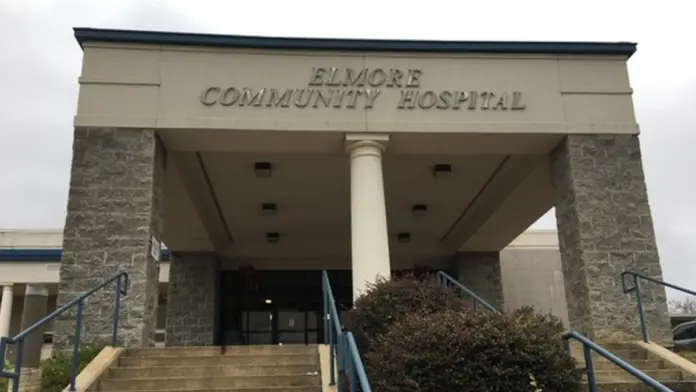 | A Nu Direction - Wetumpka, ALA Nu Direction is a private alcohol and drug rehabilitation facility that provides comprehensive treatment for various substance abuse addictions, including alcoholism, opiate addiction, and co-occurring mental health disorders. Their approach emphasizes safe and effective management of withdrawal symptoms during detoxification, alongside long-term support for recovery.Key Features and Services: Detoxification and Residential Care: A Nu Direction offers supervised medical treatment during the detox process to ensure clients can safely manage withdrawal symptoms. Following detox, the residential care program provides a supportive environment for individuals seeking long-term recovery. Additional Levels of Care: The facility also includes services focused on relapse prevention and 12-step therapy, which are integral components of the recovery process. Specialty Rehab Programs: A Nu Direction provides tailored care that addresses specific needs and experiences, including: Women’s Specific Programs: Targeted treatment that focuses on the unique challenges faced by women in recovery. Men’s Specific Programs: Gender-specific treatment addressing the distinct issues encountered by men. Integrated HIV/AIDS Care: Comprehensive health management that incorporates treatment for HIV/AIDS alongside addiction recovery. Accreditations: A Nu Direction is accredited by SAMHSA, ensuring that they meet high standards for quality and effectiveness in addiction treatment. Conclusion: A Nu Direction is dedicated to providing personalized and effective care for individuals struggling with substance abuse and mental health issues. With a focus on safe detoxification, long-term support, and specialized programs, they aim to empower clients on their path to recovery. For more information about their services or to inquire about admissions, please contact A Nu Direction directly. 500 Hospital Drive, Wetumpka, AL 36092 | Levels of Care:InpatientMedically Assisted Detox12-StepAftercare Support Payment Options:MedicareMedicaidPrivate insuranceSelf-Pay OptionsFinancial AidMilitary Insurance | ||
 | A Reprieve For MenA Reprieve for Men, operated by Bradford Health Services, is a specialized substance abuse addiction treatment center focused exclusively on helping men overcome drug and alcohol addiction. This facility offers a supportive and gender-specific environment designed to promote recovery and personal growth.Key Features and Services: Gender-Specific Treatment: The Reprieve tailors its programs specifically for men, addressing their unique challenges and experiences in recovery. This focus helps foster a sense of community and understanding among participants. Comprehensive Treatment Approach: The center integrates the Alcoholics Anonymous (AA) 12-Step program into its treatment plans, while also ensuring that each individual’s recovery plan is personalized to meet their specific needs. This holistic approach combines: Individual Therapy: One-on-one sessions to address personal issues and develop coping strategies. Group Therapy: Supportive group sessions that encourage sharing and connection among peers. Family Support: Involving family members in the recovery process to strengthen support systems. Inpatient Treatment: A Reprieve offers inpatient treatment, providing a structured and safe environment where men can focus entirely on their recovery journey. This setting promotes healing and personal development away from external stressors. Long-Term Recovery Focus: The program is designed for long-term recovery, helping individuals achieve and maintain sobriety over time. The Reprieve has been operational since 2009, creating a supportive campus that feels like home. Three-Phased Approach: The treatment program follows a three-phased approach that combines the teachings of the 12-Step program with personal work, therapy, and professional guidance from specialists. This structured pathway helps men navigate their recovery journey effectively. Conclusion: A Reprieve for Men – Long-Term Rehab from Bradford Health Services is dedicated to supporting men in their fight against substance abuse in a nurturing and family-like environment. With a focus on individualized care, spiritual recovery, and community support, the center aims to guide men toward lasting sobriety. For more information about their services or to inquire about admissions, please contact A Reprieve for Men directly. 14075 Alabama Hwy 69 S, Tuscaloosa, AL 35405 | Levels of Care:InpatientIntensive Outpatient (IOP)outpatientAftercare Support12-StepMedically Assisted DetoxPartial Hospitalization Program (PHP) Payment Options:MedicareMedicaidPrivate insuranceSelf-Pay OptionsFinancial Aid |  | |
 | A Reprieve for WomenA Reprieve for Women is a supportive and nurturing environment designed to help women break free from addiction and embark on a journey of personal growth and healing. As part of Bradford Health Services, this program emphasizes connection, community, and evidenced-based therapy, with a strong focus on the 12 Steps.Key Features and Services: A Safe Space for Women: Acknowledging that addiction impacts women uniquely, A Reprieve for Women addresses the specific needs of women who may be dealing with past trauma, societal pressures, and mental health struggles. The program offers a structured daily schedule that includes: Life Skills Training: Equipping residents with essential skills for independent living. Community Activities: Fostering a sense of belonging and support. Spiritual Reflection: Encouraging personal growth and self-awareness. Therapy Options: Including cognitive behavioral therapy (CBT), dialectical behavior therapy (DBT), and trauma-informed care. Community and Responsibility: While the community at A Reprieve for Women is close-knit, residents are encouraged to take responsibility for their recovery. This includes: Assigned household chores Dedicated time for meal preparation and cooking, promoting independence and accountability. Targeted Support: A Reprieve for Women is specifically designed for women who may struggle with: Chronic relapse Mental health challenges Toxic relationships and low self-esteem Staying on track with their recovery Those who have not found success in traditional 12 Step programs. Insurance Acceptance: A Reprieve for Women accepts a variety of healthcare insurances, including: BlueCross BlueShield Cigna Humana TRICARE AmBetter Magellan Healthcare Health Choice Memorial Health Conclusion: A Reprieve for Women offers a unique and supportive environment tailored to the specific needs of women in recovery. By combining therapeutic approaches with community support and personal responsibility, the program aims to empower women to reclaim their lives and achieve lasting recovery. For more information about their services or to inquire about admissions, please contact A Reprieve for Women directly. 14332 Alabama Hwy 69 S, Tuscaloosa, AL 35405 | Levels of Care:Intensive Outpatient (IOP)Medically Assisted Detoxoutpatient12-StepPartial Hospitalization Program (PHP) Payment Options:Private insuranceSelf-Pay OptionsMilitary Insurance |  | |
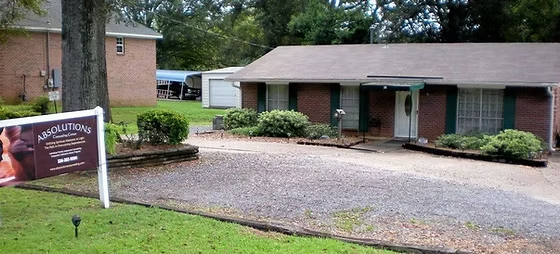 | Absolutions Counseling Center IncAbsolutions Counseling Center Inc provides substance addiction recovery services in Montgomery, Alabama, through a faith-based program. While the program incorporates Biblical principles, it does not require participants to have specific religious affiliations. The center features a men’s recovery house with an on-site manager to guide residents through their recovery journey.Key Features and Services: Men’s Recovery House: The center offers a structured living environment for men, with an on-site manager available to provide support and guidance throughout the recovery process. Group Meetings and Discussions: Residents are required to attend group meetings and discussions focused on addiction challenges. These sessions are mandatory for continued participation in the recovery program and are facilitated by licensed counselors trained to assist individuals in need. Sober Living Facilities: The sober living facility is designed to help residents concentrate on their recovery in a quiet environment, free from unnecessary distractions. Amenities include: Cable and internet access Large common areas for social interaction Furnished bedrooms Access to public transportation and worship areas Ongoing Recovery Support: The house manager has experience in aftercare living and provides ongoing support to residents. Guests are encouraged to participate in Bible studies, recovery meetings, and community programs to enhance their recovery experience. Requirements for Participation: To remain in the program, residents must comply with random drug and alcohol screenings and have a verifiable, legal income. Conclusion: Absolutions Counseling Center Inc is committed to helping individuals achieve recovery through a supportive, faith-based environment. With structured programs, dedicated staff, and a focus on community involvement, the center aims to empower men in their journey toward lasting sobriety. For more information or to inquire about their services, please contact Absolutions Counseling Center directly. 370 Perry Hill Rd, Montgomery, AL 36109 | Levels of Care:outpatientInpatientMedically Assisted Detox Payment Options:Self-Pay OptionsPrivate insurance | ||
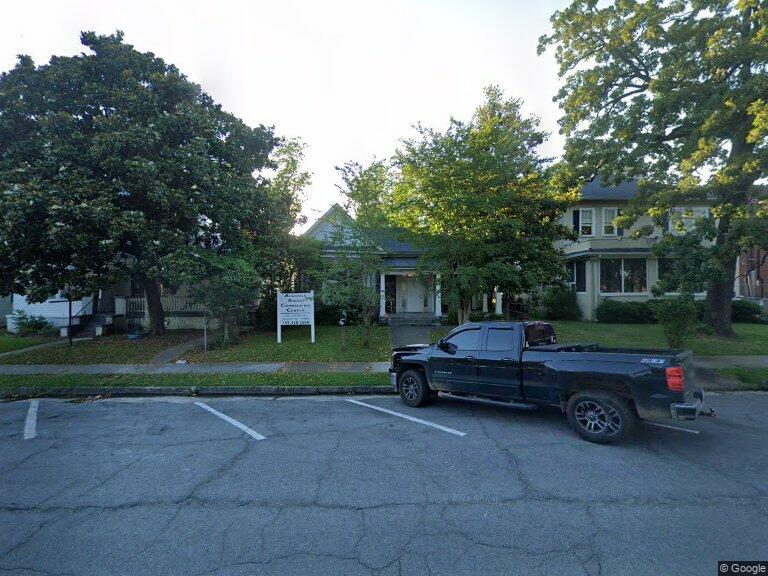 | Alabama Abuse Counseling Center, IncAlabama Abuse Counseling Center is a dedicated facility that provides treatment for individuals struggling with drug and alcohol addiction. The center focuses on helping clients achieve recovery through various therapeutic approaches tailored to their specific needs.Key Features: 1. Treatment Services: Substance Abuse Treatment: Offers comprehensive programs for individuals dealing with drug and alcohol dependencies. 2. Cost of Treatment: Variable Costs: Total treatment costs may vary based on several factors, including: Insurance Coverage: Different plans may cover varying levels of treatment. Deductibles: Out-of-pocket costs depend on individual insurance policies. Income Level: Financial circumstances can affect affordability. Level of Treatment Needed: The required intensity and duration of treatment can influence costs. 3. Support for Individuals and Families: Help for Loved Ones: The center provides support for both individuals seeking treatment and their families, offering guidance and resources for navigating the recovery process. Conclusion: Alabama Abuse Counseling Center is committed to providing effective treatment for drug and alcohol addiction in a supportive environment. With a focus on individualized care, the center aims to assist clients in their journey toward recovery. 1612 3rd Ave N, Bessemer, AL 35020 | Levels of Care:outpatient Payment Options:Military InsurancePrivate InsuranceSelf-Pay Options | ||
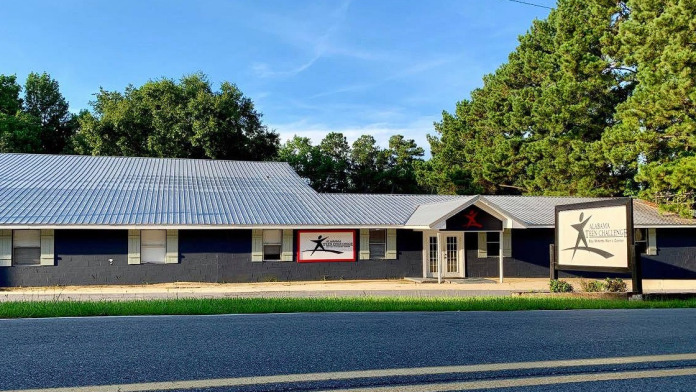 | Alabama Adult & Teen Challenge-Men’s Center SouthAlabama Adult & Teen Challenge – Men’s Center South is a faith-based residential drug and alcohol rehabilitation program specifically designed for adult men in Bay Minette, Alabama. The center specializes in phased, long-term treatment and aftercare planning, with dedicated services for young adults, seniors, justice-involved individuals, low-income persons, and those with co-occurring disorders.Key Features and Services: Residential Treatment Facility: The facility provides a highly structured and supportive environment that features comfortable, home-like amenities, allowing clients to focus entirely on their recovery. Phased Residential Program: The program requires a minimum commitment of 12 months and is designed to prepare clients for successful reintegration into their homes, workplaces, and communities. Key components include: Spiritual development as the foundation for enduring recovery Daily prayer and Bible study Regular attendance at church and chapel services Adherence to program codes of conduct Participation in discipleship activities Random drug and alcohol screenings Engagement in work therapy or academic and vocational training Emphasis on individual, group, and family therapy along with gender-specific, recovery-focused life skills training Aftercare Services: The aftercare services ensure a complete continuum of care that aligns with clients’ evolving needs. These services may include: Step-down support Housing and employment assistance Facilitation of 12-step programs Referrals for additional services Cost and Insurance: Services at Alabama Adult & Teen Challenge – Men’s Center South are available at low or no cost, with housing and treatment funded in part by clients’ program-supported employment. The center may work with major insurance providers, including Aetna, Cigna, BlueCross BlueShield, Humana, and United Healthcare, to help offset treatment costs when possible. Clients are encouraged to confirm coverage with their providers, as out-of-network benefits can vary. Conclusion: Alabama Adult & Teen Challenge – Men’s Center South is dedicated to providing a comprehensive, faith-based approach to drug and alcohol rehabilitation tailored to the unique needs of men. By focusing on spiritual development and long-term recovery, the center aims to empower clients on their journey to healing and reintegration into their communities. For more information or to seek assistance, please contact Alabama Adult & Teen Challenge directly. 9280 Hurricane Rd, Bay Minette, AL 36507 | Levels of Care:Inpatient Payment Options:Private InsuranceSelf-Pay Options |  | |
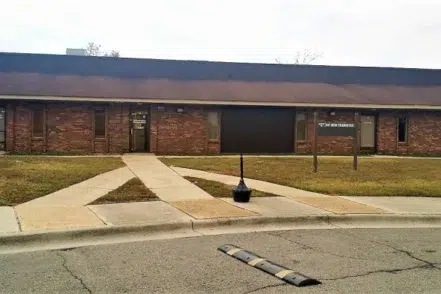 | Aletheia House - Womens and Wellness ServicesAletheia House - Womens and Wellness Services in Birmingham, Alabama, is dedicated to empowering women through comprehensive support and wellness programs. The center offers a variety of services, including substance use treatment, mental health counseling, housing assistance, and life skills training. Aletheia House focuses on creating a nurturing environment where women can heal, grow, and build a brighter future for themselves and their families. 3512 7th Ave S, Birmingham, AL 35222 | Levels of Care:InpatientoutpatientAftercare SupportPartial Hospitalization Program (PHP)12-Step Payment Options:Self-Pay OptionsPrivate insuranceMilitary Insurance | ||
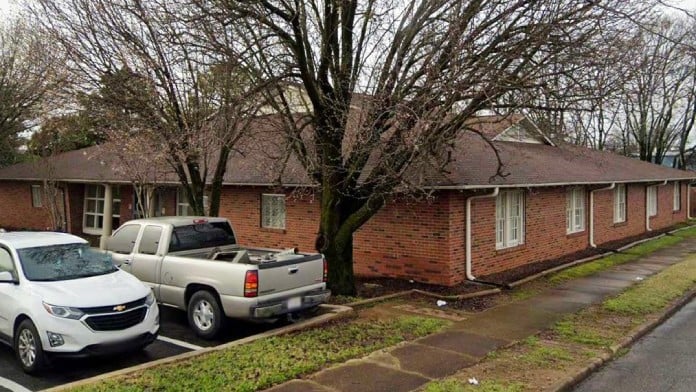 | Aletheia House – Men’s ServicesAletheia House provides specialized outpatient treatment services aimed at helping men overcome substance misuse. With a focus on personalized and trauma-informed care, the center emphasizes family involvement in the recovery process.Key Features: 1. Clinical Team Expertise: Experienced Professionals: The clinical team includes specialists in addiction recovery dedicated to providing effective support and guidance throughout the treatment journey. 2. Outpatient Treatment Services: Comprehensive Care: Services typically include: Assessment: Initial evaluations to understand individual needs. Personalized Treatment Planning: Tailored plans that address specific challenges and goals. Group and Individual Therapy: Facilitated sessions that encourage sharing experiences and building support networks. 3. Evidence-Based Therapeutic Interventions: Trauma-Informed Cognitive Behavioral Therapy (CBT): Focuses on helping clients identify and understand thought and emotional patterns contributing to substance misuse. Key Components: Recognizing triggers related to past trauma. Developing new coping strategies to manage stress and emotions without resorting to drugs or alcohol. Enhancing skills for relapse prevention and fostering a sober lifestyle. 4. Early Intervention and Recovery Support: Targeting Young Adults and Families: Offers services aimed at identifying and addressing substance use issues before they escalate. Intervention Services: Education and screenings to help young adults understand risk factors. Preventive counseling to manage behavioral concerns. 5. Comprehensive Outpatient Services: Support Beyond Addiction: Includes additional services such as: HIV/STI Screening and Prevention: Health services to ensure overall well-being. Case Management: Assistance with finding employment and accessing affordable housing to support long-term recovery. Conclusion: Aletheia House – Men’s Services is committed to providing trauma-informed, personalized care to men facing substance misuse challenges. With a comprehensive approach that includes early intervention and supportive services, the center aims to foster resilience and lasting recovery. 201 Finley Avenue West Birmingham AL, 35204 | Levels of Care:Intensive Outpatient (IOP)InpatientoutpatientAftercare SupportSober Living Homes12-StepMedically Assisted Detox Payment Options:Private InsuranceSelf-Pay OptionsMedicaidMedicareFinancial Aid |  | |
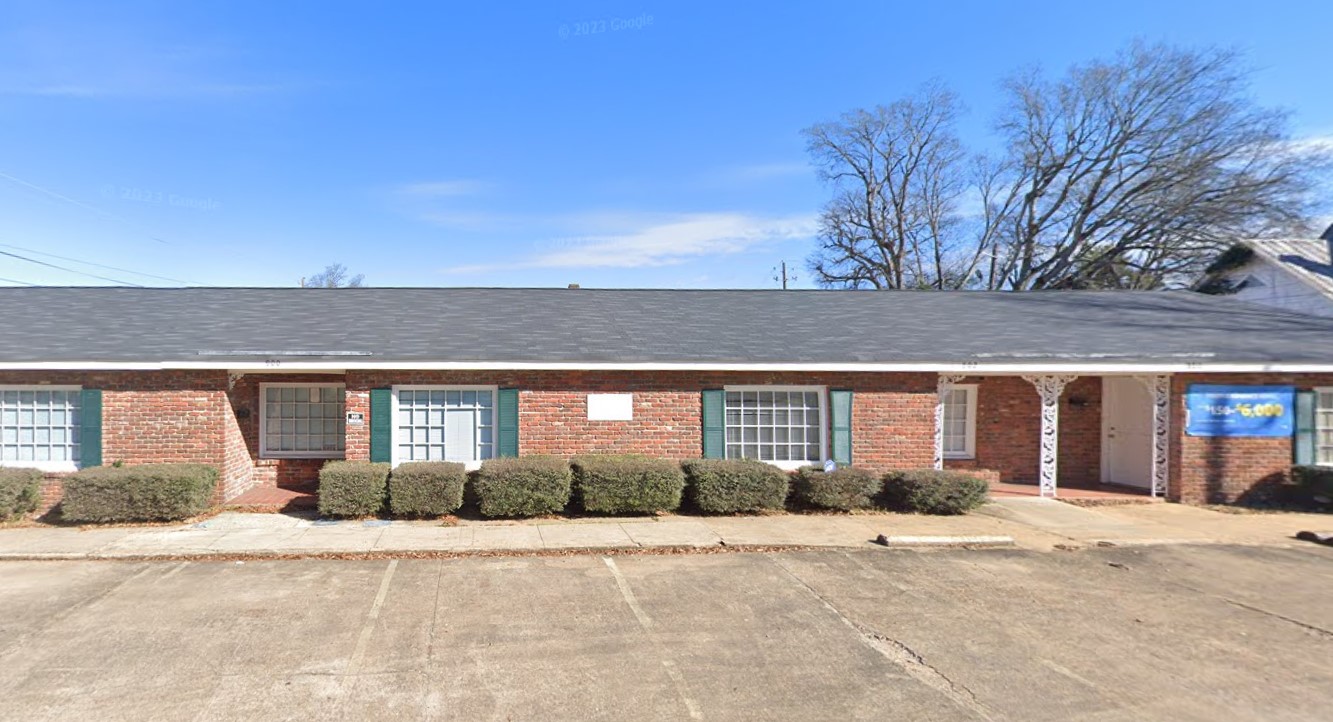 | Aletheia House – Outpatient Treatment (Selma)Aletheia House Outpatient Treatment in Selma is a dedicated outpatient drug rehabilitation center focused on providing effective treatment for individuals struggling with substance use disorders. The center offers specialized outpatient programs designed for both men and women, ensuring that clients receive the appropriate support tailored to their needs.Key Features and Services: Outpatient Treatment Programs: Aletheia House provides specific outpatient treatment programs aimed at helping individuals navigate their recovery journey. These programs are designed to accommodate various schedules and lifestyles, allowing clients to maintain their daily responsibilities while receiving care. Medication-Assisted Treatment (MAT): The center offers medication-assisted treatment for individuals battling heroin and other opioid addictions. MAT combines FDA-approved medications with counseling and behavioral therapies to enhance recovery outcomes. This approach helps manage withdrawal symptoms and cravings, facilitating a smoother path to recovery. Conclusion: Aletheia House Outpatient Treatment in Selma is committed to providing comprehensive and accessible treatment options for individuals seeking recovery from substance use disorders. With a focus on specialized outpatient programs and medication-assisted treatment, the center aims to empower clients on their journey toward lasting recovery. For more information about their services or to inquire about admissions, please contact Aletheia House directly. 900 Church St, Selma, AL 36701 | Levels of Care:outpatient Payment Options:MedicaidPrivate insuranceSelf-Pay OptionsFinancial Aid |  | |
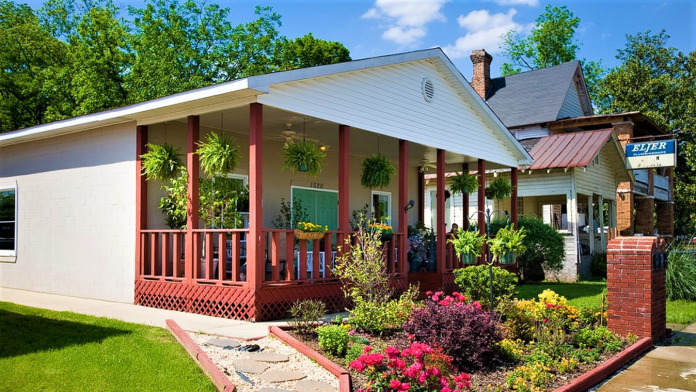 | ALR Sober Life - 2nd Avenue NorthALR Sober Life in Bessemer, Alabama, offers a supportive environment for individuals in recovery from substance use disorders. The facility provides a variety of services, including sober living accommodations, counseling, and life skills training. With a focus on fostering community and personal growth, ALR Sober Life aims to help clients build a sustainable path to recovery, encouraging them to develop healthy habits and connections as they transition back into everyday life. 1515 2nd Ave N Bessemer, AL 35020 | Levels of Care:Intensive Outpatient (IOP)outpatientAftercare SupportPartial Hospitalization Program (PHP)12-Step Payment Options:Self-Pay OptionsPrivate insuranceMilitary Insurance | ||
 | AlsanaAlsana in Birmingham, Alabama, is a specialized treatment center focused on providing compassionate care for individuals struggling with eating disorders. The facility offers a comprehensive approach that includes medical, therapeutic, and nutritional support, tailored to meet the unique needs of each client. Alsana is dedicated to fostering a nurturing environment where individuals can heal, regain their health, and develop a positive relationship with food and their bodies. 5101 Cyrus Cir, Birmingham, AL 35242 | Levels of Care:Inpatient Treatment ProgramIntensive Outpatient (IOP)Outpatient ProgramPartial Hospitalization Program (PHP) in Birmingham - ALResidential Payment Options:Health InsuranceSelf-Pay / Cash | ||
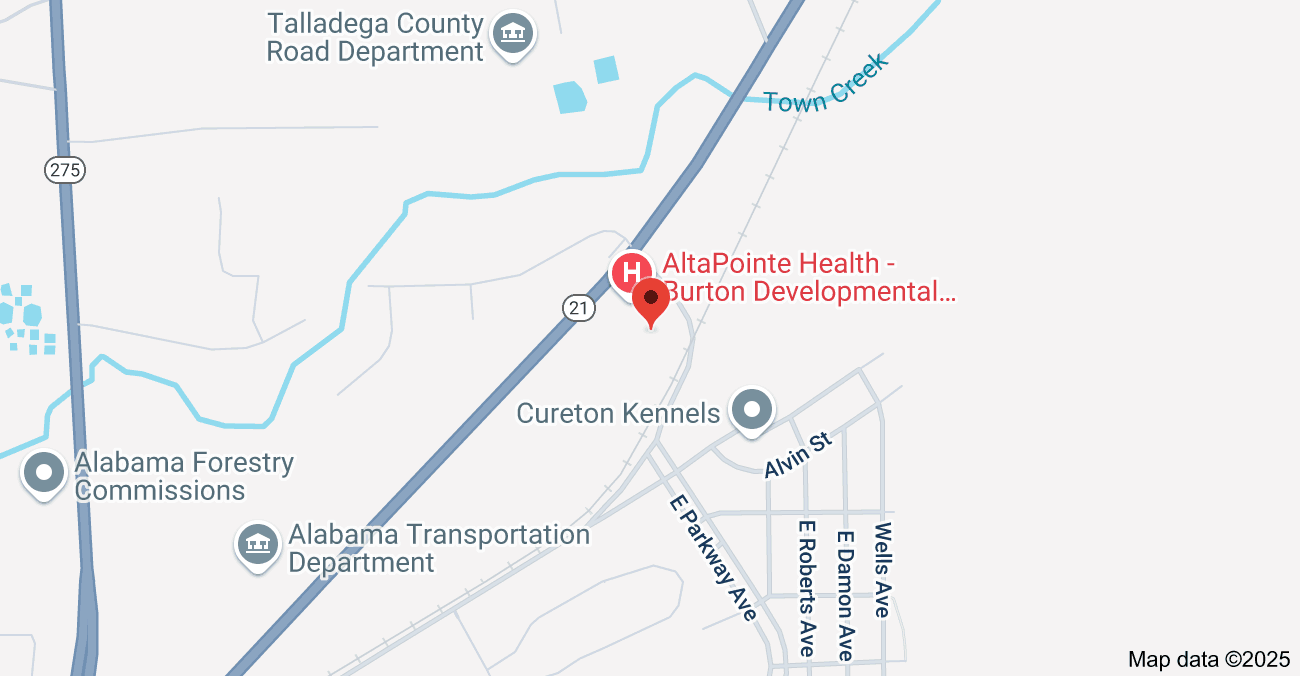 | AltaPointe - Outpatient Services - Burton CenterAltaPointe – Outpatient Services – Burton Center provides alcohol and drug rehabilitation services for men and women seeking recovery in Talladega, Alabama, with a specific focus on individuals living with opioid use disorder.Key Features and Services: Medication-Assisted Treatment (MAT): The MAT program combines FDA-approved medications with mental health counseling to support recovery. Key components include: Individual Therapy: Personalized sessions to address unique challenges and goals. Group Therapy: Supportive group sessions to foster community and shared experiences among clients. Relapse-Prevention Programming: Strategies and tools designed to help clients manage triggers and reduce the risk of relapse. Outpatient Treatment: This program is tailored for individuals who can benefit from treatment without needing a high level of supervision. Services offered include: Individual Therapy: Focused sessions for personal growth and recovery. Group Therapy: Collaborative sessions for shared learning and support. Family Therapy: Engaging family members in the recovery process to strengthen support systems. Skills Classes: Educational sessions aimed at developing coping and life skills essential for recovery. Insurance and Payment Options: AltaPointe Outpatient Center – Burton Center accepts a range of insurance plans, including: Anthem Magellan United Healthcare Aetna Humana Blue Cross Blue Shield Cigna Clients are encouraged to verify their coverage prior to enrolling in treatment, as out-of-network benefits may vary. Conclusion: AltaPointe – Outpatient Services – Burton Center is committed to providing comprehensive alcohol and drug rehabilitation services to support individuals in their recovery journey, particularly those dealing with opioid use disorder. For more information about their programs or to inquire about admissions, please contact AltaPointe directly. 16 Bemiston Ave, Talladega, AL 35160 | Levels of Care:outpatient Payment Options:MedicaidPrivate insurance |  | |
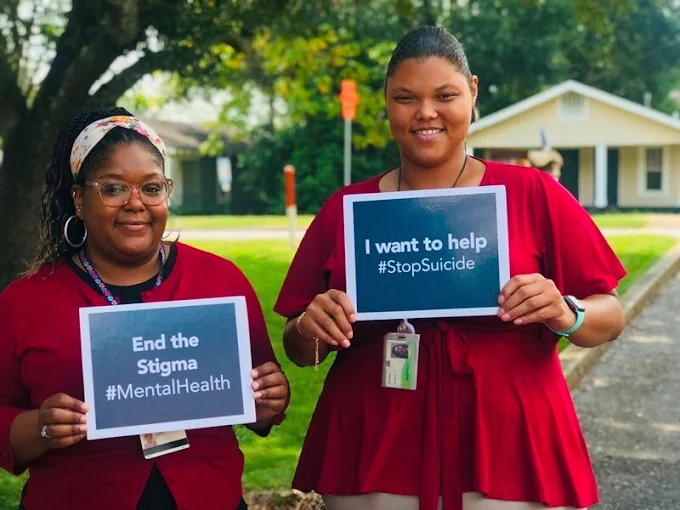 | AltaPointe - Talladega OutpatientAltaPointe – Talladega Outpatient is part of the AltaPointe network, offering comprehensive outpatient behavioral health treatment for adults aged 19 and older who are dealing with drug or alcohol addiction, as well as mental health conditions. The center is equipped to assist clients with dual diagnoses, providing an integrated approach to treatment.Key Features and Services: Customized Treatment Plans: Treatment is tailored to the individual needs of each client, focusing on specific recovery goals. The primary components include: Therapy: Various therapeutic modalities to address addiction and mental health issues. Life Skills Development: Training to cope with and manage stress in healthy ways, reducing the likelihood of relapse. Relationship Building: Emphasis on developing supportive and healthy relationships. Program Options: Clients can choose from various levels of intensity in treatment, including: Day Programs: Structured daytime programs providing support and therapy. Intensive Outpatient Programs (IOP): More focused treatment for those needing additional support. Medications for Opioid Addiction: Medications prescribed to help reduce cravings and manage withdrawal symptoms while restoring mental health. Specialized Programs and Support Services: AltaPointe offers a range of specialized programs, including: Substance Abuse Program for Women: Tailored to address the unique experiences women face with addiction. Housing Programs: Support for clients who are homeless, providing stability during recovery. Jail Diversion Program: Assists individuals facing criminal charges due to addiction or mental illness. Supported Employment: Helps clients find and maintain employment, laying a foundation for a stable life in recovery. Conclusion: AltaPointe – Talladega Outpatient is dedicated to providing a holistic approach to recovery, combining direct therapy with a wide array of support services. Their goal is to equip clients with the necessary tools for a successful and fulfilling life in recovery. For more information about their programs or to inquire about admissions, please contact AltaPointe directly. 10 Bemiston Ave, Talladega, AL 35160 | Levels of Care:outpatient12-Step Payment Options:MedicareMedicaidPrivate insuranceSelf-Pay OptionsFinancial AidMilitary Insurance | ||
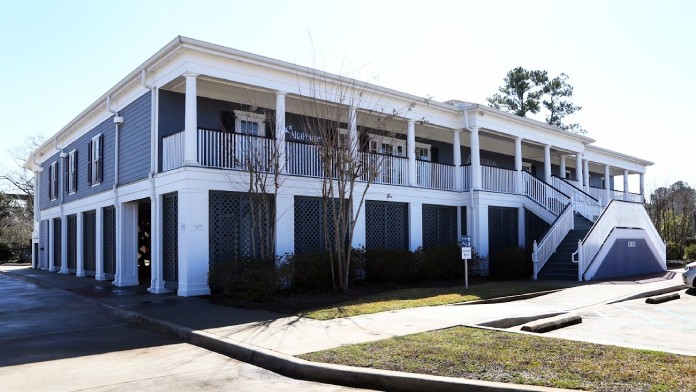 | AltaPointe – Outpatient Services – Bayou La BatreAltaPointe – Outpatient Services in Bayou La Batre offers mental health care and addiction recovery programs for both youth and adults. The center provides specialized programming for a variety of populations, including adolescents, young adults, seniors, pregnant and postpartum women, justice-involved individuals, homeless and indigent persons, and those with co-occurring disorders. Services include crisis intervention, assertive community treatment (ACT), medication-assisted treatment (MAT), day treatment, intensive outpatient (IOP), general outpatient (OP), and aftercare programming.Key Features and Services: Accreditation and Comprehensive Care: The facility is accredited by The Joint Commission and features comprehensive medical and mental health assessments, personalized care planning, and case management for all clients. Referrals for acute and subacute inpatient care are available as needed. Day Programs and Intensive Outpatient Services: The day programs and IOP services are tailored for clients needing a high level of supervision and support, particularly those transitioning from inpatient care. Clients participate in: Extensive individual, group, and family counseling Robust, recovery-focused life skills training addressing topics such as coping strategies, anger management, and relapse prevention Clients in alcohol and/or opioid recovery can enroll in the evidence-based MAT program for longer-term pharmacotherapy. General Outpatient and Aftercare Services: The general outpatient (OP) services and aftercare programs ensure a complete continuum of care that aligns with clients’ evolving needs. These may include: Facilitation of 12-step programs Housing and employment assistance Referrals for additional supportive services Insurance and Financial Assistance: AltaPointe – Outpatient Services accepts most major insurance plans, including Aetna, Anthem, Beacon, BlueCross BlueShield, Cigna, Tricare, Humana, and United Healthcare. Clients should verify their coverage with their providers, as out-of-network benefits can vary. Financial aid is also available for those who qualify. Conclusion: AltaPointe – Outpatient Services – Bayou La Batre is committed to providing high-quality mental health care and addiction recovery services tailored to the diverse needs of individuals and families. With a focus on comprehensive support and treatment, the center aims to empower clients on their path to recovery and improved well-being. For more information or to seek assistance, please contact AltaPointe directly. 13833 Tapia Avenue, Bayou La Batre, AL 36509 | Levels of Care:outpatient Payment Options:Military InsurancePrivate InsuranceFinancial AidSelf-Pay OptionsMedicaidMedicare | ||
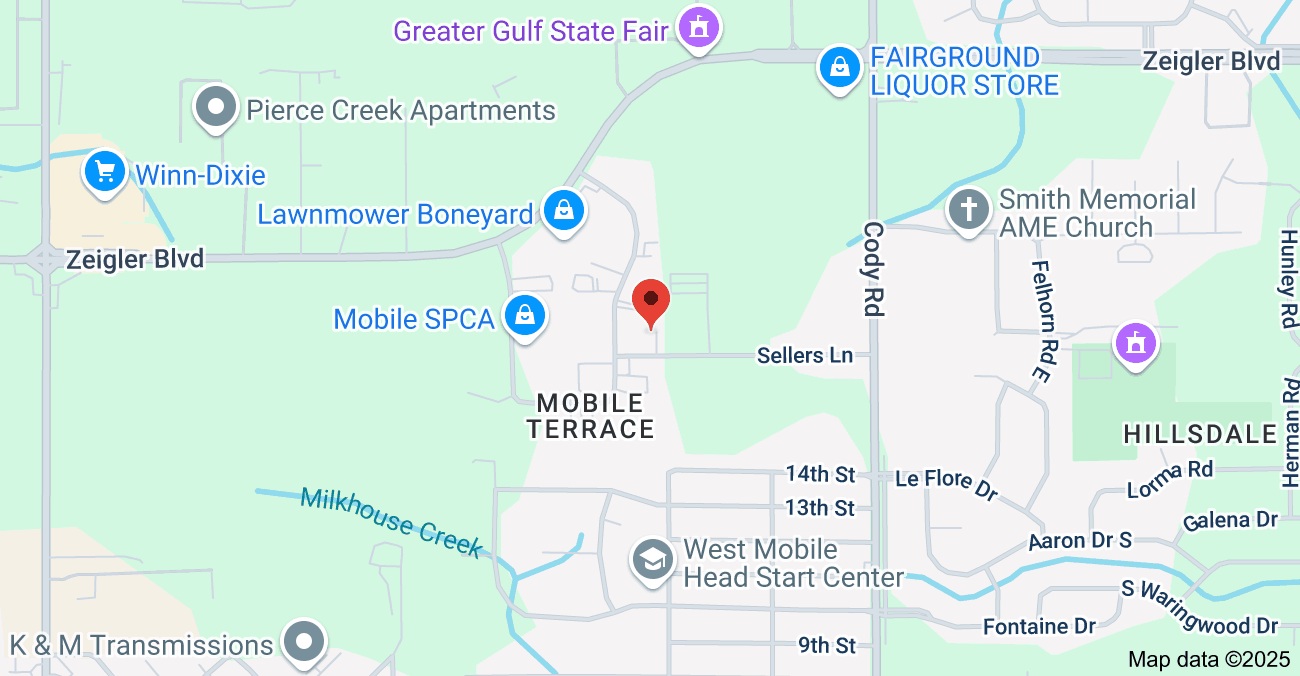 | AltaPointe – Zeigler OutpatientAltaPointe – Zeigler Outpatient is a drug and alcohol rehabilitation center offering outpatient addiction treatment and mental health care. The facility focuses on providing comprehensive support services and community resources to assist individuals in their recovery journey.Key Features and Services: Outpatient Addiction Treatment: The outpatient program is designed for adults aged 19 and older, focusing on recovery, problem resolution, symptom reduction, and stabilization. Each client receives an individualized treatment plan tailored to their specific needs. Treatment components include: Individual and Group Therapy: Providing a supportive environment for clients to share experiences and learn from one another. Behavior Modification: Techniques aimed at changing harmful behaviors associated with addiction. Cognitive Behavior Therapy (CBT): Helping clients understand and change negative thought patterns that contribute to substance use. Psychoeducation: Educating clients about addiction and recovery processes. Skills Building: Equipping clients with practical skills to support their recovery and improve daily functioning. Community Resources and Support Services: AltaPointe offers a variety of additional services to support clients, including: Homeless housing assistance to help individuals secure stable living arrangements. Jail diversion programs aimed at assisting individuals in legal situations related to substance use. Case management to connect clients with necessary resources and support systems. Supported employment programs to help individuals find and maintain employment as part of their recovery. Conclusion: AltaPointe – Zeigler Outpatient is committed to providing effective outpatient addiction treatment and mental health care for adults. With a focus on individualized treatment plans and community resources, the facility aims to support clients in achieving and maintaining recovery. For more information or to inquire about services, please contact AltaPointe – Zeigler Outpatient directly. 7280 Sellers Ln, Mobile, AL 36608 | Levels of Care:outpatient Payment Options:MedicareMedicaidPrivate insuranceSelf-Pay OptionsFinancial Aid | ||
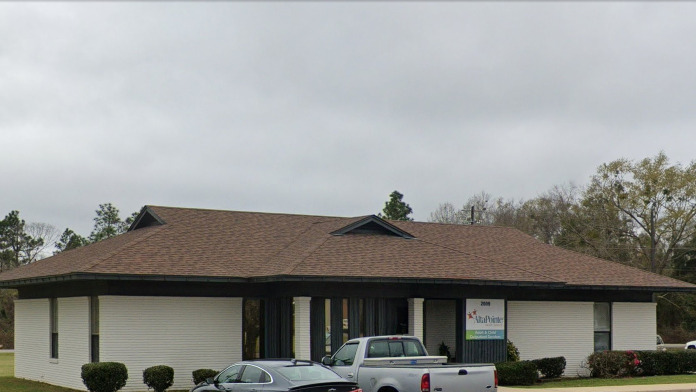 | AltaPointe Health - Bay Minette, ALAltaPointe - Outpatient Services in Bay Minette, Alabama, provides essential mental health and substance use treatment for individuals seeking support in their recovery journey. The center offers a range of outpatient services, including individual therapy, group counseling, and psychiatric evaluations tailored to meet the unique needs of each client. With a commitment to fostering resilience and promoting mental well-being, AltaPointe strives to create a supportive environment that empowers individuals to achieve their goals and improve their quality of life. 2009 Medical Center Dr, Bay Minette, AL 36507 | Levels of Care:outpatient Payment Options:MedicaidPrivate insuranceSelf-Pay OptionsFinancial AidMedicareMilitary Insurance |  | |
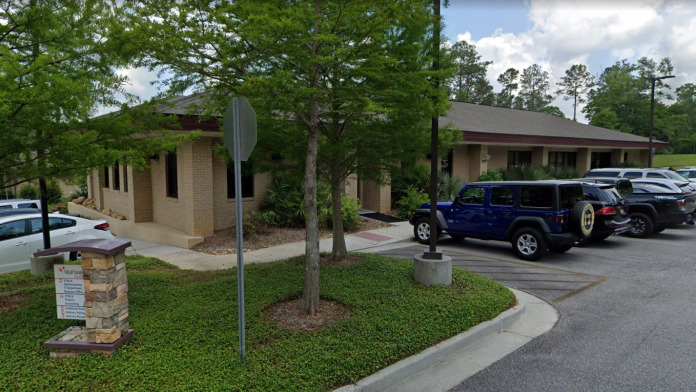 | Altapointe Health - Mobile, ALAltaPointe Health is a comprehensive behavioral health center dedicated to providing addiction treatment and mental health services for both men and women seeking recovery. The center emphasizes personalized care to meet the unique needs and goals of each client.Key Features and Services: Assessment and Personalized Treatment: All treatment begins with a thorough assessment to determine the appropriate level of care for each individual. Based on this assessment, clients receive a customized treatment plan tailored to their specific needs. Residential Treatment: The residential program is designed for individuals requiring 24/7 supervision during the initial stages of their recovery. Clients receive psychotherapy and participate in group therapy sessions in a supportive environment. Intensive Outpatient Program (IOP): The IOP meets three times per week for three hours per session. This program includes: Individual therapy Group therapy Family therapy Couples counseling Engagement in 12-Step programming, which supports recovery through a structured approach. Outpatient Treatment: The outpatient program supports individuals through self-help groups and psychotherapy. Clients typically meet once a week with their counselor, allowing for ongoing support while maintaining daily activities. Conclusion: AltaPointe Health is committed to providing effective addiction treatment and mental health services through a range of programs tailored to individual needs. With a focus on comprehensive assessment, personalized care, and a supportive environment, the center aims to help clients achieve lasting recovery. For more information or to inquire about services, please contact AltaPointe Health directly. 5750 Southland Dr # A, Mobile, AL 36693 | Levels of Care:outpatient12-StepIntensive Outpatient (IOP)Aftercare Support Payment Options:MedicareMedicaidPrivate insuranceSelf-Pay OptionsFinancial Aid | ||
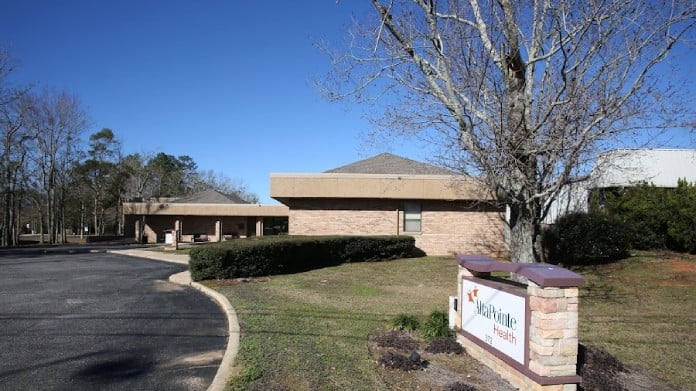 | AltaPointe Health Outpatient - FairhopeAltaPointe Health Outpatient – Fairhope is a private alcohol and drug rehabilitation facility located in Fairhope, Alabama. The center offers comprehensive treatment for various substance use addictions, including alcoholism, opiate addiction, and co-occurring mental health disorders.Key Features and Services: Detoxification and Medical Treatment: The facility provides supervised medical treatment to safely manage withdrawal symptoms during detoxification, ensuring clients undergo this critical part of recovery in a safe environment. Flexible Outpatient Therapy: Patients can benefit from flexible outpatient addiction therapy, which allows them to live at home while receiving regular treatment. This approach supports individuals in maintaining their daily responsibilities while focusing on recovery. Additional Levels of Care: AltaPointe Health offers various levels of care, including: Intensive Outpatient Programs: For clients needing more structured support. 12-Step Therapy: Incorporating traditional recovery principles. Intervention Services: Assisting families in addressing addiction issues. Specialty Rehab Programs: The facility features tailored care programs that address specific populations: Women’s Specific Needs: Programs designed to focus on issues and challenges unique to women. Gender-Specific Treatment for Men: Addressing the unique challenges faced by male clients. Age-Appropriate Treatment for Teens: Targeting adolescent-specific issues to support young individuals in their recovery journey. Accreditations: AltaPointe Health Outpatient – Fairhope is accredited by the state of Alabama and The Joint Commission, reflecting its commitment to providing high-quality care. Conclusion: AltaPointe Health Outpatient – Fairhope is dedicated to offering comprehensive and individualized treatment for substance use disorders. With a focus on safe detoxification, flexible outpatient therapy, and specialty programs, the facility aims to support clients of all ages and backgrounds on their journey to recovery. For more information or to seek assistance, please contact AltaPointe Health Outpatient – Fairhope directly. 372 S Greeno Rd, Fairhope, AL 36532 | Levels of Care:outpatientIntensive Outpatient (IOP)12-StepIntervention ServicesMedically Assisted Detox Payment Options:Financial AidPrivate InsuranceSelf-Pay OptionsMedicaid | ||
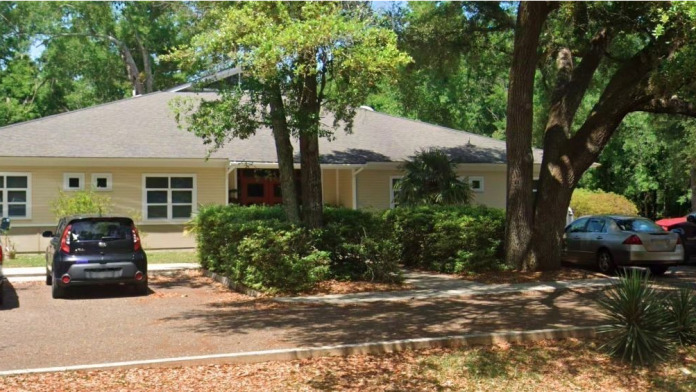 | AltaPointe Health Outpatient - FoleyAltaPointe Health Outpatient – Foley is a community medical care facility that provides a variety of recovery services for adults and adolescents facing behavioral health challenges and substance use disorders. The clinic operates in an outpatient treatment setting, making it accessible for individuals seeking support while maintaining their daily routines.Key Features and Services: Insurance and Accessibility: The facility accepts most major insurance policies, including Medicaid, and offers sliding scale fee discounts for those in need. Several services are available for free, enhancing access to care for the community. Specialized Recovery Programs: AltaPointe Health offers a range of specialized programs through its adult outpatient care, including: Jail Diversion Program: Assists individuals in navigating the legal system while receiving support. Rehabilitative Day Program: Provides structured support throughout the day for individuals in recovery. Specialized Homeless Housing Programs: Targets the needs of homeless individuals seeking recovery. Co-Occurring Disorder Treatment: The clinic specializes in treating individuals with co-occurring disorders, providing integrative care that involves both mental health professionals and addiction recovery specialists. Clients work with counselors and medical professionals to receive comprehensive support tailored to their needs. Counseling and Support: Support is offered through individual and group counseling sessions, where clients can learn critical recovery skills and coping strategies to manage negative emotions and triggers. The facility also provides medication-assisted treatment (MAT) to help manage ongoing cravings, enhancing the recovery process. Support for Mothers and Pregnant Women: AltaPointe Health offers comprehensive recovery support specifically for mothers and pregnant women, providing them with priority access for dual diagnosis treatment. Conclusion: AltaPointe Health Outpatient – Foley is committed to providing accessible and comprehensive recovery services for individuals facing behavioral health and substance use challenges. With a focus on specialized programs, co-occurring disorder treatment, and supportive care for mothers and pregnant women, the facility aims to empower clients on their journey to recovery. For more information or to seek assistance, please contact AltaPointe Health Outpatient – Foley directly. 201 E Camphor Ave, Foley, AL 36536 | Levels of Care:outpatient Payment Options:Private InsuranceSelf-Pay OptionsMedicareMedicaid |
Find Alabama drug rehabs in cities near you or sort by letter.
For anyone seeking help for addiction for themselves or a loved one calls to Addiction Helpline America are completely confidential and available 24/7.
Please note: any treatment center listed on our site that receives calls is a paid advertiser.
Calls to a specific treatment center’s listing will be connected directly to that center.
Calls to our general helpline will be answered by treatment providers, all of whom are paid advertisers.
By calling the helpline, you agree to our terms and conditions. These calls are free of charge and carry no obligation to enter treatment. Neither Sober Steps nor anyone answering your call receives a commission or fee based on your choice of treatment provider.
If you’d like to explore additional treatment options or connect with a specific rehab center, you can browse our top-rated listings, visit our homepage, or call us at (844) 561-0606. You may also contact us for further assistance.
Calls to any general helpline will be answered or returned by one of the treatment providers listed, each of which is a paid advertiser:
Our helpline is available 24 hours a day, 7 days a week at no cost to you and with no obligation for you to enter into treatment. We are committed to providing support and guidance whenever you need it.
In some cases, Addiction Helpline America charges our verified partner a modest cost per call. This fee helps us cover the costs of building and maintaining our website, ensuring that we can continue to offer this valuable service to those in need.
detox recovery in chatom al, drug rehab in chatom al, rehabs in alabama, alcohol rehabilitation chatom al, addiction counseling chatom al, alabama drug rehab
Rehabilitation programs vary significantly in their approach and structure, catering to diverse needs and preferences. In Alabama, individuals can choose from inpatient, outpatient, and detox programs, each designed to provide a unique level of care and support during the recovery journey.
Inpatient programs offer a structured environment where clients reside at the facility, receiving intensive therapy and support. Outpatient programs, on the other hand, allow individuals to maintain their daily lives while attending therapy sessions. Detox programs focus on safely managing withdrawal symptoms, preparing clients for further treatment.
The cost of addiction treatment can vary widely based on the type of program, duration of stay, and specific services offered. Understanding these costs is crucial for individuals seeking help, as they need to plan their finances accordingly to ensure access to the necessary treatment.
Many facilities in Alabama accept various payment options, including insurance, self-pay, and financial aid. It's essential for individuals to verify their insurance coverage and explore available financial assistance programs to mitigate the financial burden of treatment.
Families play a vital role in the recovery process, and having access to support resources can make a significant difference. Rehabilitation centers in Alabama often offer programs and resources designed specifically for family members of individuals struggling with addiction.
These resources may include family therapy sessions, educational workshops on addiction, and support groups where families can share experiences and coping strategies. Engaging with these resources helps families understand the challenges of addiction and fosters a supportive environment for their loved ones in recovery.
Aftercare services are crucial for maintaining sobriety after completing a rehabilitation program. These services provide ongoing support and resources to help individuals transition back into their daily lives while minimizing the risk of relapse.
In Alabama, many rehab centers offer aftercare programs that include regular check-ins, support groups, and access to counseling services. These programs are designed to reinforce the skills learned during treatment and provide a safety net for individuals as they navigate their recovery journey.